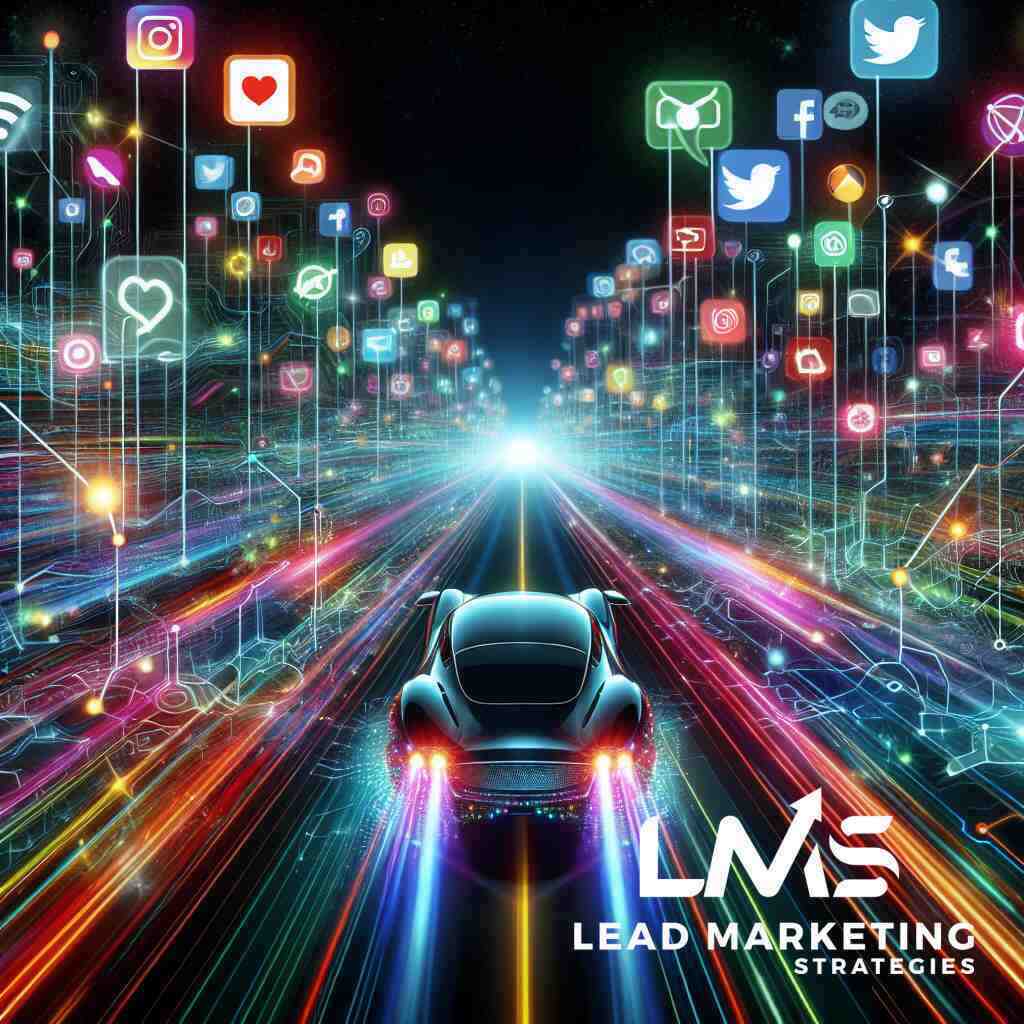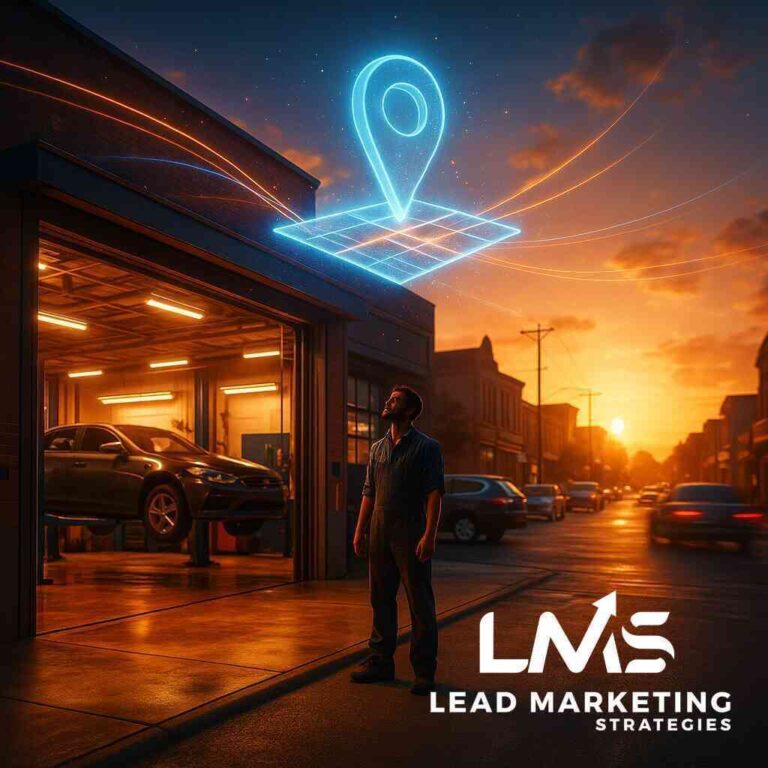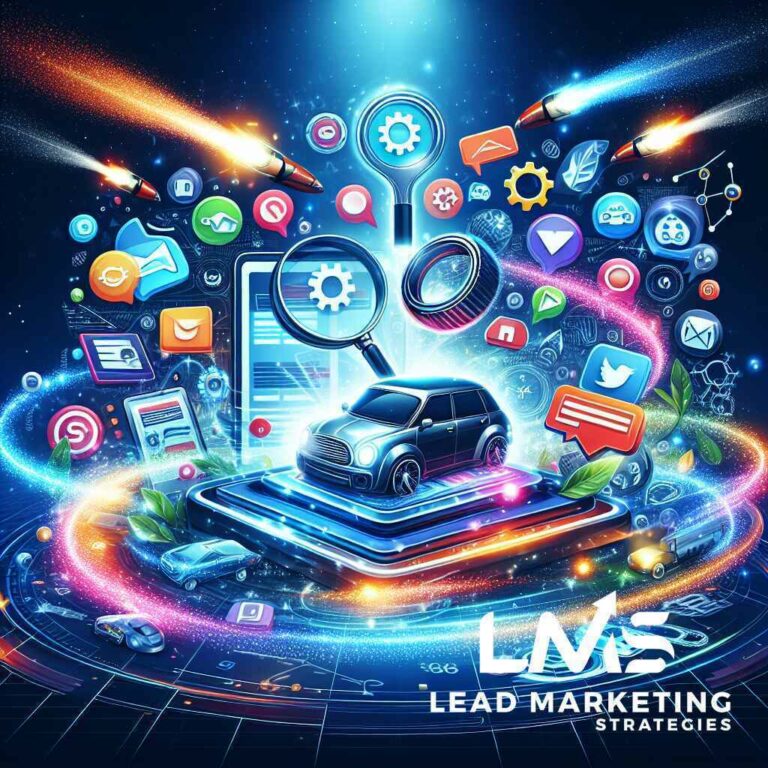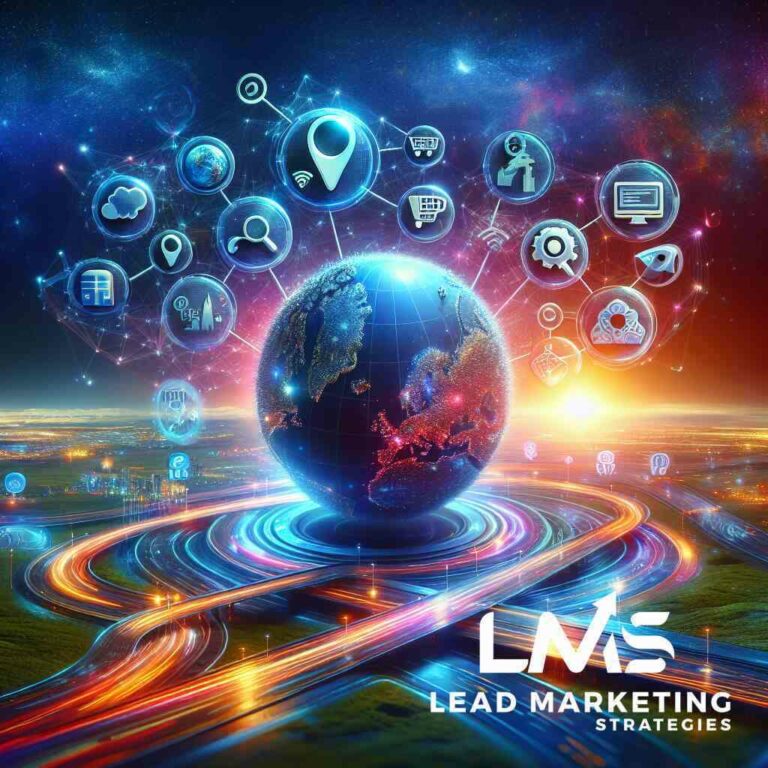Introduction Exploring Modern Automotive Communication
The Digital Revolution in the Auto Industry
The automotive industry has transformed tremendously over the last few decades, riding a wave of rapid technological advancements. This digital revolution in automotive has led to the emergence of connected cars, advanced analytics, and the integration of artificial intelligence in vehicle design and manufacturing. As these technologies fuse with traditional automotive practices, they create a dynamic environment where adaptation is critical. Automotive brands are now more than just manufacturers; they are digital innovators re-shaping mobility. For businesses within this sector, understanding these technological changes is crucial to maintaining a competitive edge and optimizing their marketing strategies.
Why Social Media Matters for Automotive Brands
Social media’s impact on automotive brands cannot be underestimated. It offers unprecedented direct access to consumers, which is invaluable for building brand loyalty. Platforms like Instagram and Facebook provide a space for dealerships and auto repair shops to showcase their offerings visually. Additionally, social media facilitates social media analytics for auto businesses, helping them understand customer behavior and preferences. These insights empower brands to tailor their messages and engage more effectively with their audience. Consequently, integrating social media into their marketing strategies allows automotive companies to enhance their visibility and foster community engagement.
Understanding Automotive Social Media Trends
One cannot ignore the evolving automotive social media trends that are influencing marketing strategies today. These trends encompass a broad range of tactics, from leveraging influencer marketing to adopting immersive technologies like augmented reality. Crafting impactful influencer partnerships in automotive sectors offers brands the opportunity to reach more comprehensive, more engaged audiences. Furthermore, innovations such as virtual showrooms are enabling potential buyers to experience vehicles interactively. Businesses must monitor these trends to ensure they are not only keeping up but setting the pace in an ever-competitive marketplace. By doing so, automotive brands will continue to thrive in this digital era, engaging with their audience in meaningful and innovative ways.
Pioneering Automotive Influencer Collaborations
Crafting Authentic Automotive Influencer Partnerships
In the realm of automotive marketing, crafting influencer partnerships has emerged as a transformative strategy. By collaborating with influencers who share authentic and relatable automotive experiences, brands can effectively amplify their reach and build credibility. This approach involves meticulously selecting individuals whose values and aesthetics align with the brand’s identity. The essence of this strategy lies in crafting influencer partnerships in automotive, where influencers become storytellers who bring a brand’s message to life. For instance, automotive businesses can leverage influencers to generate buzz around new car models, emphasizing real-life driving experiences and vehicle capabilities. Such partnerships not only enhance brand visibility but also foster deeper connections with target audiences, adding value and authenticity to marketing campaigns.
Harnessing the Power of Automotive Brand Ambassadors
Brand ambassadors in the automotive sector wield considerable influence, acting as bridges between brands and consumers. These individuals embody the brand’s ethos, sharing genuine enthusiasm and firsthand knowledge about vehicles. By harnessing the power of automotive brand ambassadors, companies are able to maintain consistent brand messaging while reaching diverse segments. Their authentic interactions resonate with followers, transforming them into loyal customers. Social media platforms, particularly Instagram and Facebook, serve as dynamic stages where ambassadors can share visually engaging content, from captivating road trips to exclusive behind-the-scenes footage. Such content not only boosts engagement but also enhances social media branding for car dealerships, creating a ripple effect that drives consumer interest and demand.
Future of Influencer Engagement in Auto Marketing
The future of influencer engagement in auto marketing is poised to leverage evolving technologies and media platforms. As virtual reality and augmented reality gain traction, influencers will be able to offer immersive vehicle experiences, transporting audiences into the driver’s seat without leaving their homes. This trend will redefine how consumers explore and interact with automotive brands. Moreover, the rise of new social media platforms opens fresh avenues for influencer collaboration. TikTok, known for its skyscraping engagement levels, presents opportunities for brands to connect with younger audiences through creative, viral challenges. With these advancements, automotive companies must remain agile, continually refining their strategies to integrate innovative influencer engagement tactics that align with shifting consumer behaviors.
Digital Car Show Innovations and Immersive Experiences
Virtual Reality and Augmented Reality in Auto Shows
The automotive industry has witnessed revolutionary advancements with the integration of virtual reality and augmented reality in auto shows. These technologies redefine how potential customers and enthusiasts engage with vehicles, offering immersive experiences without physical boundaries. By embracing VR and AR, automotive brands provide virtual test drives and interactive walkthroughs of their latest models. The ability to explore a car’s interior or customize its features in real time offers unparalleled convenience and engagement. This shift not only captivates tech-savvy audiences but also sets a new standard for experiential marketing in the automotive sector. Brands that leverage these immersive technologies can potentially enhance their visibility and appeal, thus driving consumer interest and fostering stronger connections with their audiences.
Creating Engaging Digital Car Events
Creating engaging digital car events incorporates innovative tools and strategies to captivate audiences beyond the conventional car show format. By hosting virtual unveilings and interactive webinars, brands invite consumers to participate in exciting automotive experiences from anywhere in the world. These events can feature live Q&A sessions with industry experts, interactive polls, and social media contests, further enhancing engagement. Moreover, platforms such as YouTube and Instagram Live have become crucial channels for disseminating these experiences, enabling global reach and participation. By making creative use of these platforms, auto brands can ensure that their digital car events are not only informative but also memorable and impactful. The strategic use of digital activities is pivotal for attracting attention and generating excitement around new vehicle launches, thereby establishing a robust online presence.
Innovations Transforming Traditional Automotive Expos
With the innovations transforming traditional automotive expos, automotive companies are pushing the envelope, reinventing the way these events are perceived and attended. As the digital sphere evolves, traditional expos blend with innovative digital elements to offer hybrid experiences. Attendees can participate either in person or virtually, making these events more inclusive and accessible. Engaging in virtual environments enhances interactions, allowing users to view vehicles, attend workshops, and network without geographical limitations. This transformation is not only cost-effective but also significantly reduces the environmental impact traditionally associated with large-scale conventions. By embracing and leading this change, automotive brands leverage modern technology to stay relevant and competitive. Such strategic innovations position them at the forefront of industry trends, enhancing their attractiveness to both consumers and stakeholders alike.
By innovating and embracing digital transformations, automotive businesses can fully harness the potential of car show innovations. Utilizing virtual auto show innovations allows brands to connect with audiences like never before, transforming how vehicles are experienced in the digital age. Explore how innovative strategies optimize digital engagement. By partnering with experts like Lead Marketing Strategies, auto shops can effectively navigate these advancements and create unforgettable automotive experiences that captivate and convert.
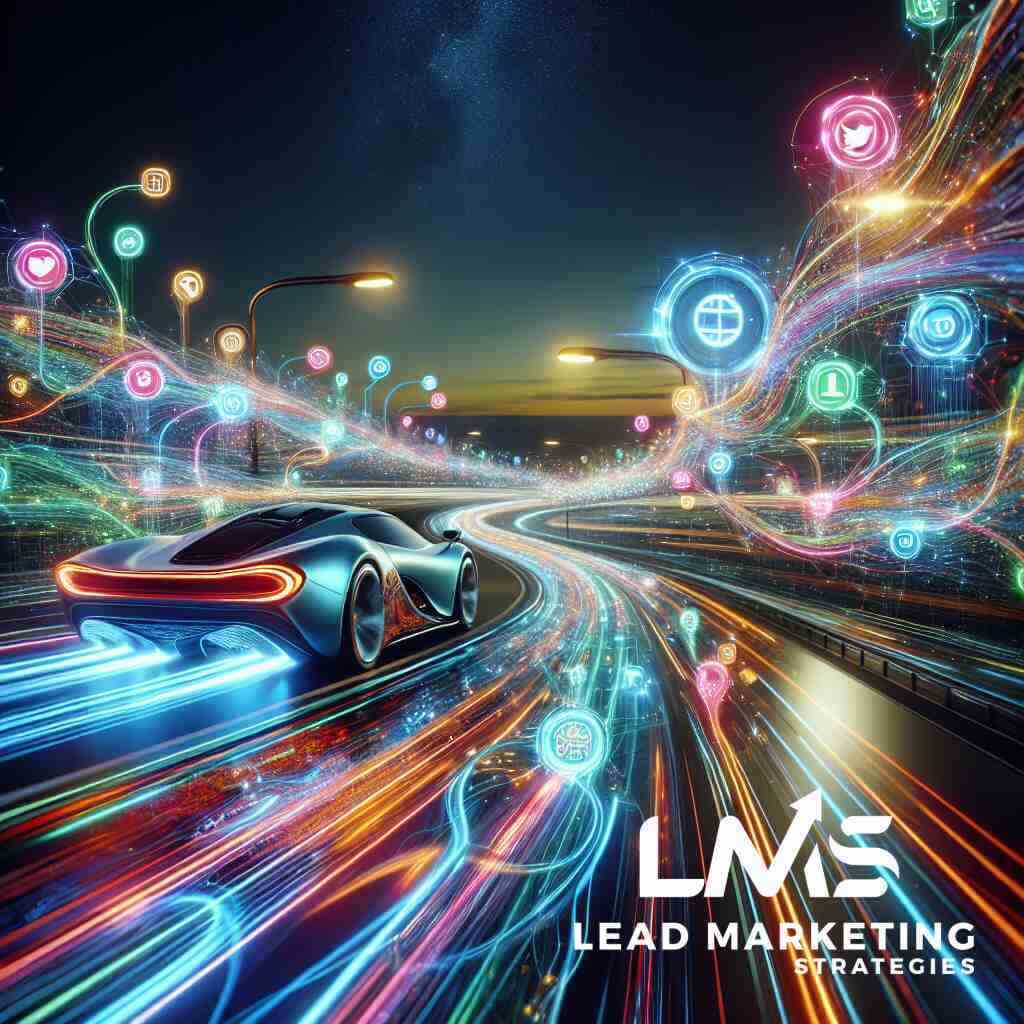
Mastering the Art of Cross-Platform Storytelling
Integrating Automotive Narratives Across Platforms
In an era dominated by digital interfaces, mastering cross-platform automotive storytelling has become pivotal for brands in the automotive industry. Each platform offers unique advantages and nuances, allowing businesses to tailor their narratives to fit different audiences. On Instagram, stories that highlight vehicle aesthetics through sharp, vibrant images or videos tend to garner more engagement. Meanwhile, platforms like Twitter offer the chance to share timely updates and insights into the brand’s activities, promoting real-time interaction with followers. Facebook’s reach and detailed targeting capabilities make it a versatile option for storytelling, as businesses can publish more in-depth content revolving around car features or brand ethos. By seamlessly integrating narratives across these platforms, automotive marketers amplify their impact and reinforce their brand identity, driving audience engagement across digital channels. Explore how brands optimize cross-channel presence through cross-platform automotive storytelling.
Visual Content Strategies for Memorable Branding
Visual content stands as a cornerstone in crafting memorable automotive branding strategies. Imagery and video content evoke emotions, capturing the essence of a brand and connecting with audiences on a deeper level. Videos featuring dynamic car scenes, such as thrilling road journeys or innovative feature demonstrations, captivate viewers and enhance brand perception. High-quality images depicting a car’s design nuances can be shared on platforms like Pinterest and Instagram, where visual content thrives. Automotive brands can also leverage YouTube for more comprehensive presentations, offering tutorials, reviews, and behind-the-scenes content that intrigue and inform potential buyers. By curating compelling and visually impactful content, brands not only enhance their digital presence but also foster stronger brand association and recall among potential customers. These strategies are essential for those seeking to elevate their branding in digital marketing endeavors.
Engaging Car Stories that Resonate with Audiences
Crafting engaging car stories is an effective strategy to resonate with automotive audiences across social media platforms. Stories that weave narratives around real-life experiences, adventures, or customer testimonials allow audiences to see themselves in the driver’s seat, creating an emotional connection with the brand. For example, featuring a customer’s journey or an innovative use of a vehicle showcases practical applications while humanizing the brand. Engaging narratives are further bolstered by interactive elements such as polls, Q&As, or live demonstrations, providing audiences with a participatory role in the storytelling process. Additionally, creating content that invites user participation, like sharing personal car photos or creating user-driven hashtags, encourages community interaction and brand loyalty. These storytelling methods play a crucial part in shaping perceptions and boosting engagement, ultimately embedding the brand within the consumer’s own story. For more innovative strategies, automotive businesses can explore unique approaches, such as employing TikTok strategies for car enthusiasts to reach new, diverse audiences. Discover the potential of TikTok within your marketing strategy.
Optimizing Social Media Engagement and Metrics
Decoding Automotive Customer Engagement Metrics
Understanding automotive customer engagement metrics is crucial for brands aiming to fine-tune their social media strategies. Engagement metrics include likes, shares, comments, and clicks providing insight into consumer behavior and preferences. Brands can implement advanced analytics tools to monitor these interactions, gaining a clearer picture of what resonates with audiences. By analyzing metrics, automotive companies can determine content effectiveness and identify trends that drive engagement. Such data-driven insights enable businesses to refine their automotive digital branding strategies, ensuring their approach aligns with consumer expectations and enhances brand loyalty.
Strategies for Real-Time Social Media Communication
Timeliness is a vital component of a thriving automotive social media strategy. Implementing real-time customer engagement tactics can significantly boost a brand’s presence and consumer interaction. Real-time communication involves promptly addressing customer inquiries and feedback to foster a sense of connection and community. Utilizing platforms like Twitter for instant updates or hosting live sessions on Instagram encourages dynamic and spontaneous interaction. By adopting these strategies, automotive companies can maintain a relevant and responsive brand image, further instilling trust among followers and enhancing overall engagement levels.
To explore more about optimizing engagement approaches, visit real-time customer engagement tactics.
Boosting Automotive Engagement via User-Generated Content
Leveraging user-generated content (UGC) is an innovative approach to boost automotive engagement on social media. UGC involves encouraging customers to create and share content related to their experiences with a brand’s products or services. This participatory approach not only increases authentic content but also builds community. Brands can incentivize users through contests, hashtags, or community challenges, transforming customers into brand advocates. This strategy enhances visibility and credibility, as potential clients often trust peer reviews over brand advertisements. By fostering an engaged community, automotive businesses can sustain a robust social media presence and drive organic growth.
Leveraging Automotive Social Media Analytics
Turning Data into Actionable Automotive Insights
In the competitive world of automotive digital marketing, the ability to convert data into actionable insights translates to tangible success. By harnessing the power of automotive digital branding strategies, businesses can fine-tune their marketing approaches seamlessly. For instance, data on social media interactions helps marketers identify customer preferences, popular content, and emerging trends, enabling them to tailor their campaigns effectively. Embracing sophisticated analytics tools allows brands to assess the efficacy of their strategies in real time, adjusting tactics on-the-fly. This dynamic approach ensures that automotive companies remain adaptable, learning from each interaction to enhance engagement and drive loyalty.
Social Listening Tools for Automotive Analysis
Social listening tools play a pivotal role in automotive analysis, allowing brands to delve deep into the virtual conversations surrounding their products. These tools provide invaluable insights into consumer sentiments, enabling an understanding of brand perception across various platforms. By focusing on social media crisis handling, automotive businesses can quickly address negative feedback, safeguarding their reputations. Social listening not only aids in monitoring brand mentions but also helps in tracking competitor activities, market shifts, and emerging trends. Equipped with these insights, brands can fine-tune their crisis management strategies and bolster community trust, strengthening their overall market presence.
Optimizing Ad Targeting through Analytics
Analytics profoundly optimizes ad targeting, ensuring marketing messages resonate with the intended audience. By leveraging detailed data and metrics, automotive companies refine their advertising strategies to achieve enhanced accuracy and efficiency. Whether focusing on demographic data, user behaviors, or interactions, analytics can elevate ad precision. Linking these insights with automotive event promotions, brands can create targeted campaigns that resonate with specific audience segments. This targeted approach enhances engagement, driving conversions and maximizing the return on investment. Utilizing such sophisticated analytics empowers automotive brands to sustain competitive advantage, ensuring their marketing efforts are both impactful and cost-effective. For an illustrative use of strategic targeting, explore Lead Marketing Strategies on Google Maps.
Exploring Niche Platforms for Automotive Impact
Unlocking TikTok for Automotive Engagement
TikTok has quickly emerged as a critical tool in the arsenal of automotive marketers aiming to connect with a younger, digitally-native audience. By adapting their strategies for this platform, brands can craft bite-sized, engaging content that resonates with TikTok’s community-driven ethos. Automotive businesses can highlight new car models through creative challenges or utilize car enthusiasts to produce user-centric content that spreads organically. The platform’s algorithm rewards originality and engagement, enabling even small brands to achieve viral success and substantial reach. Leveraging TikTok not only boosts immediate engagement but also positions brands as innovative and forward-thinking, crucial in today’s fast-paced digital landscape.
Utilizing LinkedIn for Automotive B2B Marketing
For automotive businesses, LinkedIn serves as a robust platform for B2B marketing. It provides the unique capability to establish meaningful connections with industry professionals and decision-makers. By sharing insightful content, such as thought leadership articles and industry reports, businesses can assert themselves as experts in automotive advancements. Moreover, LinkedIn’s specialized groups offer a space for brands to network and engage in discussions with like-minded professionals. By optimizing their LinkedIn presence, automotive companies can effectively foster business leads and collaborations. Exploring platforms like Lead Marketing Strategies on LinkedIn can provide insights into leveraging LinkedIn to its full potential.
Discovering Automotive Potential on Alternate Platforms
Beyond mainstream social media channels, alternative platforms present untapped opportunities for automotive engagement. Forums like Reddit enable brands to participate in niche communities deeply passionate about automotive topics, fostering authentic dialogue. Podcasts, growing in popularity, offer another avenue where brands can delve into in-depth discussions on industry trends or innovations. Brands that explore these platforms can access dedicated audiences seeking specific automotive content, allowing for tailored and impactful marketing efforts. By diversifying their digital presence, automotive marketers can tap into new demographics, ensuring a comprehensive approach to digital strategy that maximizes reach and engagement.
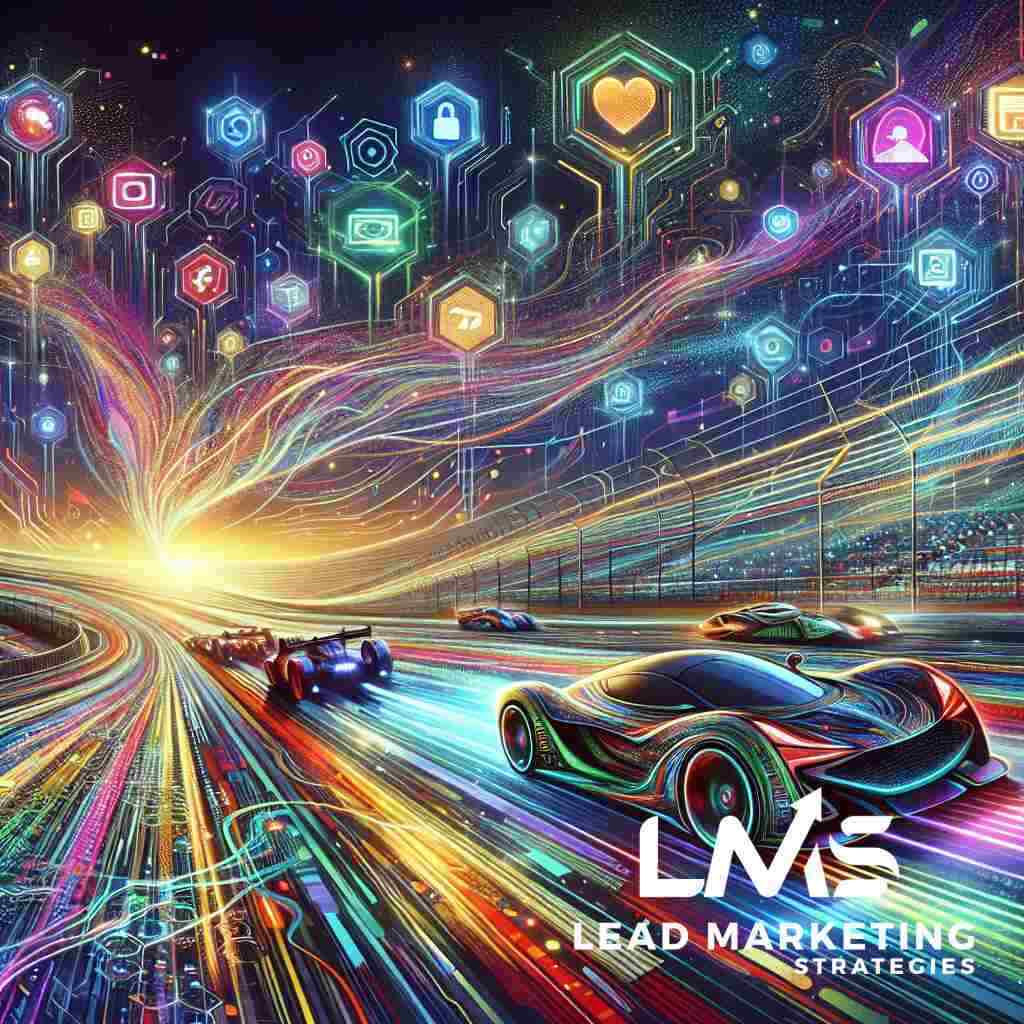
Automotive Social Media Risk Management
Handling Automotive Social Media Crises
Handling automotive social media crises effectively is crucial in maintaining a brand’s reputation in the digital space. The immediacy of social media means that issues can escalate rapidly, requiring swift and strategic responses. Firstly, brands must have a dedicated crisis management team in place to address any potential problems as they arise. This team should be well-versed in social media crisis handling techniques, ensuring responses are both rapid and thoughtful, aiming to resolve issues and dampen negative impacts. Secondly, establishing clear communication channels is essential. Quick updates through platforms like Twitter or Facebook can assuage concerns, demonstrating transparency and accountability. By taking these proactive steps, automotive companies can protect their image and maintain consumer trust. Dive deeper into this strategy through effective social media crisis handling.
Establishing Robust Reputation Management Strategies
Establishing robust reputation management strategies is essential for automotive businesses navigating the ever-evolving social media landscape. These strategies start with a comprehensive understanding of brand perception across various platforms. Utilizing tools that track sentiment analysis and brand mentions allows automotive brands to stay informed about their public image. Furthermore, engaging positively with online communities reinforces a strong, trustworthy digital presence. Regularly producing content that aligns with brand values and proactively addressing customer feedback are pivotal for maintaining a solid reputation. Partnering with expert agencies like Lead Marketing Strategies ensures brands stay ahead, leveraging industry-specific insights and technologies to bolster reputation efforts. By prioritizing these tactics, automotive companies can secure consumer loyalty and stand resilient in the face of potential PR challenges.
Crisis Management Best Practices in Auto Social Media
Crisis management best practices in auto social media require deliberate preparation and agile response mechanisms. One critical practice is developing a well-defined response plan tailored to varying levels of crises. This plan should detail communication protocols and designate key personnel responsible for decision-making and communications. Another best practice is constant monitoring using automotive social listening tools, allowing brands to detect adverse trends early and react promptly. Additionally, training employees on how to handle social media interactions ensures a cohesive and unified brand voice, even amidst adversity. Finally, post-crisis analysis is indispensable, as it allows companies to learn from the incident and adjust strategies to avert future occurrences. Automotive businesses that adhere to these best practices can navigate social media crises with confidence, safeguarding their brand integrity and consumer trust.
Conclusion Driving the Future of Automotive Social Media
Summarizing Critical Automotive Social Media Trends
The landscape of automotive social media is rapidly evolving, driven by innovations and the need for brands to connect authentically with their audience. From pioneering automotive influencer partnerships to leveraging digital car show innovations, the trends highlight the importance of immersive and interactive experiences. Modern consumers seek more than just advertisements; they desire stories, community interaction, and engagement. By embracing SEO strategies in Arizona and robust social media analytics, automotive brands can uncover actionable insights to refine their approach. Understanding these trends helps businesses maintain a competitive edge, ensuring they remain relevant and agile in an ever-shifting digital landscape. The future will continue to favor brands that are innovative, authentic, and ready to adapt their tactics in response to evolving consumer behaviors.
The Road Ahead for Automotive Digital Strategies
Looking forward, automotive digital strategies should prioritize personalized and data-driven approaches. Integrating cross-platform storytelling with visual content strategies ensures that brands maintain a consistent narrative across all touchpoints. Empowered with insights from automotive social media analytics, companies can enhance user engagement by crafting targeted experiences. By refining methodologies for real-time communication and leveraging user-generated content, businesses can deepen connections with car enthusiasts online. The significance of platforms like TikTok and LinkedIn is set to rise, offering unique opportunities to tap distinct demographics. At the forefront of the digital revolution, Auto Shop Marketing Strategies is poised to guide businesses in navigating these trends effectively, offering comprehensive solutions tailored to the automotive sector.
Embracing Change in Automotive Social Media Tactics
The dynamic nature of social media necessitates a willingness to embrace change and innovation. Automotive brands must continually adapt by exploring new platforms and technologies, such as virtual reality and new social media channels, to engage their audiences effectively. This forward-thinking approach includes adopting crisis management best practices and establishing robust reputation management strategies to safeguard brand integrity. As automotive businesses implement and optimize their digital presence, they can harness the potential of Lead Marketing Strategies on Medium to gain impactful insights and drive success. By staying ahead of industry trends and adopting strategic innovations, automotive businesses will not only survive but thrive, achieving a robust and sustainable online footprint.
Frequently Asked Questions
Question: How do automotive social media trends impact digital marketing strategies for car dealerships?
Answer: Automotive social media trends play a crucial role in shaping digital marketing strategies for car dealerships. By embracing these trends, dealerships can leverage platforms like Facebook and Instagram to enhance their social media branding. They can effectively harness automotive influencer partnerships to widen their reach and engage with more targeted audiences. Furthermore, trends such as cross-platform automotive storytelling allow dealerships to maintain a cohesive brand identity while catering to diverse consumer preferences. Auto Shop Marketing Strategies specializes in integrating these trends into comprehensive digital marketing plans, ensuring dealerships remain competitive and visible in the fast-paced digital world. Read more on What Does Auto Shop Marketing Mean for Brand Development?
Question: How can the insights from the blog ‘What are the Critical Automotive Social Media Trends Now?’ help in managing automotive social media crises?
Answer: The blog ‘What are the Critical Automotive Social Media Trends Now?’ provides invaluable insights for managing social media crises in the automotive industry; dive into Guide to Automotive Social Media in Ohio. By understanding contemporary trends, businesses can anticipate potential issues and establish robust crisis management frameworks. The blog emphasizes the importance of using automotive social listening tools to monitor brand mentions and sentiments, allowing for proactive intervention before situations escalate. Auto Shop Marketing Strategies offers expert guidance in crafting and executing social media crisis management strategies, ensuring that brands can quickly address issues while maintaining trust and protecting their reputation.
Question: What role does user-generated content play in boosting automotive engagement on social media platforms?
Answer: User-generated content (UGC) is a powerful tool for boosting engagement on automotive social media platforms. It allows brands to tap into the authenticity of consumer experiences, creating a more relatable and trustworthy brand image. By encouraging customers to share their car stories or participate in automotive hashtag campaigns, brands can increase their visibility and foster a sense of community; check out Best Digital Marketing Practices for Car Rentals. UGC also provides valuable insights into consumer preferences and behaviors, which can inform future marketing strategies. Auto Shop Marketing Strategies helps automotive businesses leverage UGC to build vibrant online communities and enhance their social media presence.
Question: How can automotive brands effectively use TikTok for engagement and marketing?
Answer: TikTok presents a unique opportunity for automotive brands to engage with a younger, digitally-native audience. By creating entertaining and informative bite-sized content, brands can capture the attention of TikTok users and encourage viral engagement. TikTok’s community-driven this allows brands to highlight new car models, showcase engaging car maintenance videos, or even host creative social media contests for car enthusiasts; see more on How to Engage Potential Clients with Auto Video Marketing. Auto Shop Marketing Strategies provides expertise in crafting effective TikTok strategies that align with current trends, ensuring that automotive brands can maximize their reach and interaction on this dynamic platform.
Question: How do automotive social media analytics enhance ad targeting and customer engagement?
Answer: Automotive social media analytics are essential for optimizing ad targeting and enhancing customer engagement. By analyzing data and metrics, brands can gain insights into customer behaviors, popular content, and engagement rates. This information allows for more precise ad targeting, ensuring that marketing messages reach the most relevant audiences. Additionally, analytics can help businesses fine-tune their automotive customer engagement metrics, developing strategies that resonate well with their demographic. Auto Shop Marketing Strategies harnesses the power of analytics to help automotive enterprises achieve impactful and cost-effective marketing campaigns, driving consumer interest and loyalty. Refer to What Defines Effective Automotive Email Marketing?
